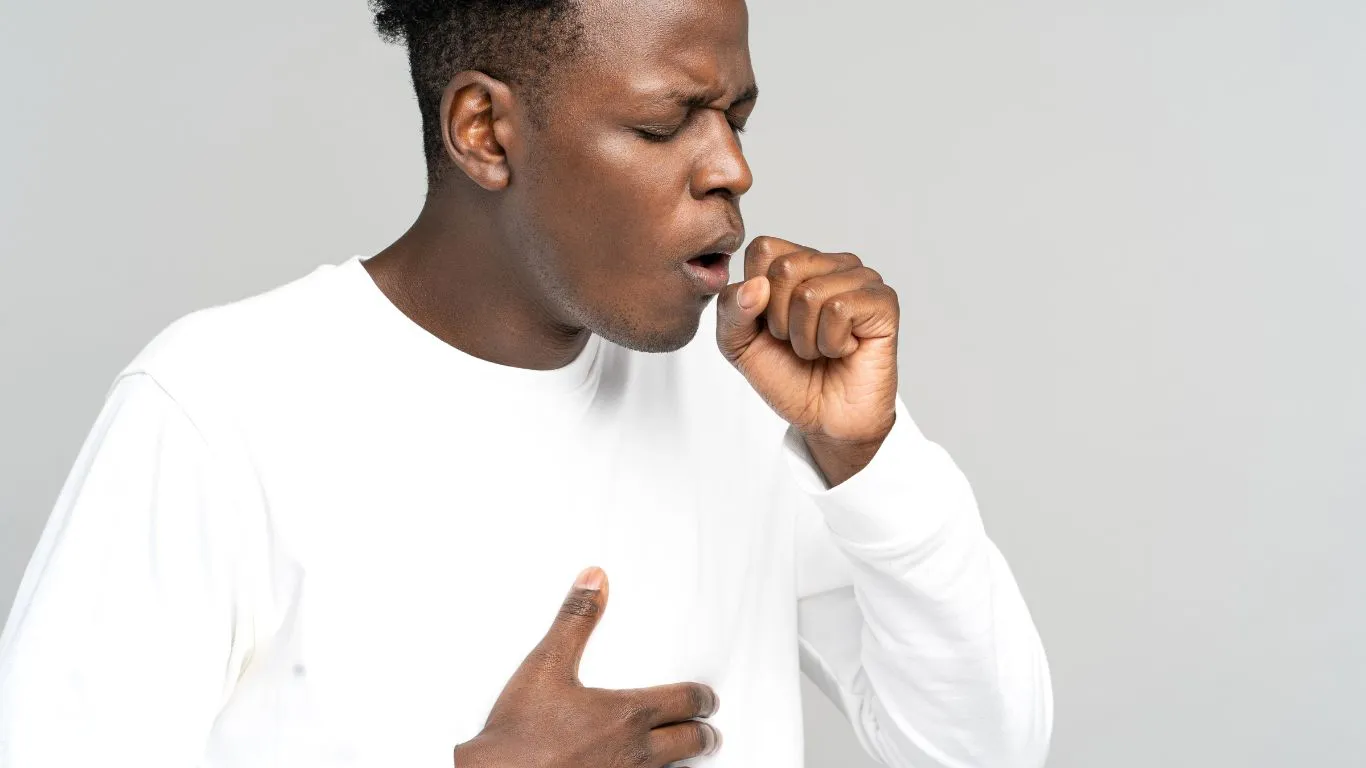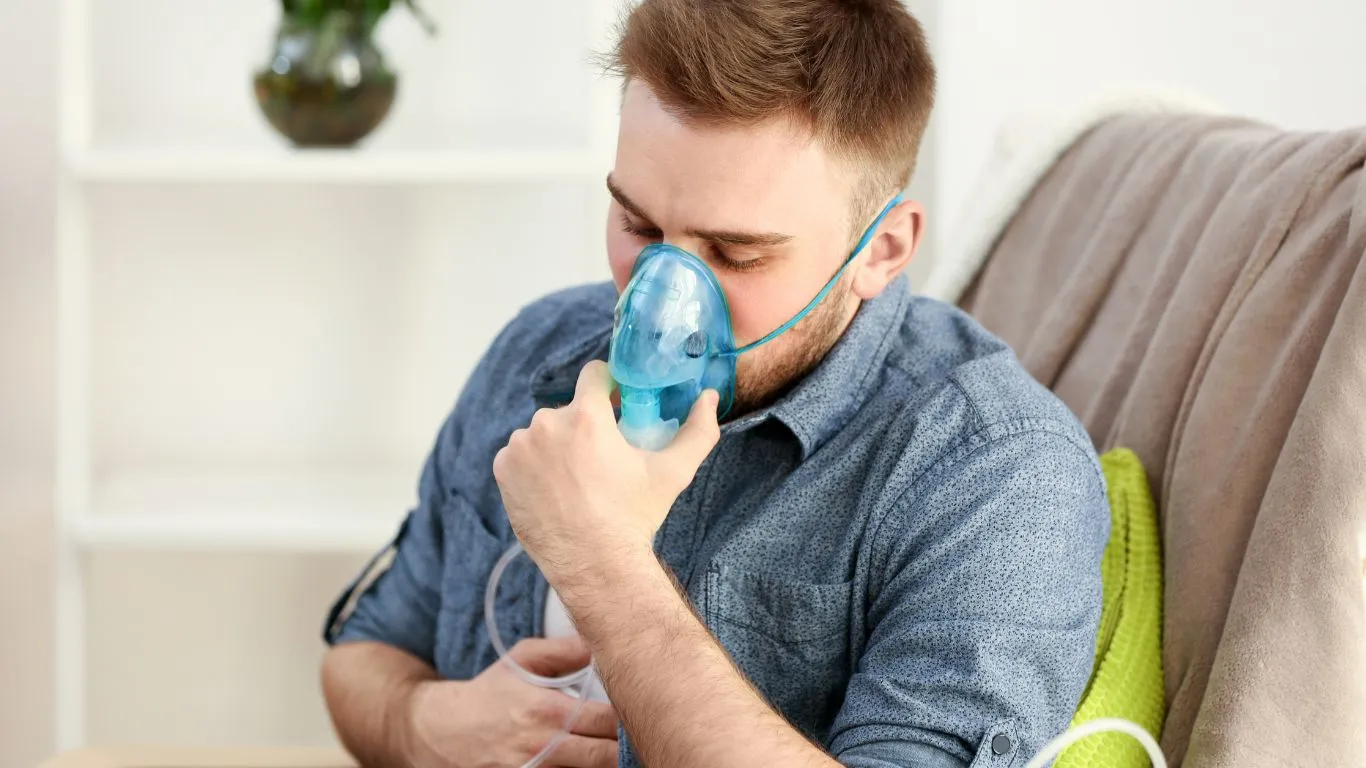Why Asthma Symptoms Get Worse After Meals & How to Fix It Fast
If you’ve ever noticed your asthma symptoms get worse after meals, you’re not imagining things. It’s something I’ve seen plenty of times in my work as a Pulmonary Nurse—patients come in wheezing or coughing not after a long jog or being around pollen, but right after dinner. Honestly, it’s not even always about what they ate. Sometimes, just how much or how quickly they ate makes all the difference. I’ve had patients describe this tight, suffocating feeling in their chest minutes after finishing a meal, and the culprit? Their asthma flaring up. Let’s talk about why that happens, what’s going on inside your body, and what you can actually do about it.
Why Asthma Symptoms Can Get Worse After Meals

You might think of asthma as something that’s only triggered by things like cold air, exercise, or allergens. But here’s the thing—your digestive system and respiratory system are a lot more connected than most people realize. When you eat a large meal, your stomach expands. That expansion can put pressure on your diaphragm, which sits right beneath your lungs. When that happens, your lungs don’t have as much room to expand—and boom, you feel that familiar tightness or shortness of breath.
Gastroesophageal Reflux (GERD) and Asthma—A Not-So-Silent Partner
In my years of working with patients, one super common factor I’ve seen is acid reflux, or GERD. It’s sneaky. You might not even realize you have it, but it could be a major reason why your asthma symptoms worsen after meals. When acid creeps back up the esophagus, it can irritate your airways or even get aspirated into the lungs—triggering bronchospasms. Yep, a burning throat and a coughing fit after lunch might be more connected than you think.
It’s Not Just What You Eat, But How You Eat It
I’ve had patients who were absolutely stumped. “But I didn’t eat anything spicy or greasy,” they’d say. And it’s true—sometimes, the meal wasn’t anything inflammatory or fatty. But they scarfed it down in five minutes flat, sitting hunched over, barely chewing. That kind of rapid eating increases the chances of swallowing air (called aerophagia), and that can lead to bloating and pressure, which again, can mess with your breathing. So it’s not just the food—it’s the pace and posture too.
Common Foods That Can Trigger Post-Meal Asthma Symptoms

Now, let’s dive into some usual suspects. These foods don’t bother everyone, but I’ve seen patterns—especially in people with both asthma and reflux.
- Fried and fatty foods: They slow down digestion and increase the risk of acid reflux.
- Carbonated drinks: Soda lovers, beware. Bubbles = more bloating, and bloating = more pressure on the lungs.
- Chocolate: Sad, but true. Chocolate can relax the lower esophageal sphincter, making it easier for acid to creep up.
- Citrus fruits and juices: Orange juice seems innocent, but it’s acidic and can provoke symptoms for some.
- Alcohol and caffeine: Both can increase acid production and lower esophageal muscle tone.
Quick note from the field: I once had a patient who couldn’t figure out why their asthma spiked every Friday night. Turns out, it was their weekly ritual of pizza and wine—hello, acid reflux!
How Your Body Responds to Fullness When You Have Asthma

Fullness isn’t just uncomfortable—it can genuinely affect your breathing. When your stomach is overly full, especially if you’ve eaten quickly or had a heavy meal, it can restrict diaphragmatic movement. That means less expansion in the lungs and more effort to get a good breath in. For someone with asthma, that extra effort can tip the scale toward an attack or at least some serious wheezing.
- Stomach expansion presses on the diaphragm
- Diaphragm compression reduces lung capacity
- Less room for lungs to expand = breathing difficulty
- Extra work to breathe triggers asthma symptoms
Sometimes, even the body’s natural response to digestion can worsen things. For example, after a large meal, blood flow is redirected to your digestive tract. This might make you feel tired, but it also means less oxygen delivery where you might need it most—like your lungs during a flare-up. I’ve actually had patients describe post-meal asthma like “breathing through a straw while feeling half-asleep.” Not fun.
Real-Life Experience: What I Tell My Patients
I always tell patients who have trouble with asthma symptoms getting worse after meals to start tracking patterns. Keep a food and symptom diary for a week or two—it’s amazing what shows up. Some find that dairy is their trigger, others realize it’s timing (like eating right before bed). And honestly, a lot of times, they just need to slow down at the table. Eating mindfully, sitting upright, and giving their food time to digest can make a world of difference.
When Asthma Symptoms Hit After Meals: Timing Is Everything

One thing I always ask my patients is *when* the symptoms show up after eating. Are we talking 10 minutes later? An hour? Right before bed? Because believe it or not, the timing can tell us a lot. If you notice your asthma symptoms are worse after meals and they hit quickly, it could be bloating or gastric pressure causing issues. If they show up later—say 30 minutes to an hour—it might be reflux creeping in or food-related inflammation.
From what I’ve seen, people who lie down soon after eating are especially prone to those nighttime wheezing episodes. Your stomach contents can back up more easily when you’re horizontal, and for someone with reactive airways, that’s a recipe for an unpleasant night.
What I’ve Learned From My Night Shift Patients
During my years on night shift (shoutout to all my fellow nurses running on coffee and adrenaline), I noticed a trend—emergency visits for asthma would often spike a couple hours after dinner time. People would come in clutching their chest, saying, “I just finished dinner and suddenly, I couldn’t breathe.” And more often than not, they’d had something greasy or acidic, or they laid back in a recliner to “digest.” Trust me, that recliner becomes enemy number one if reflux is triggering your asthma.
How Stress While Eating Can Trigger Post-Meal Asthma

This one gets overlooked a lot, but it’s important. Ever eaten a meal while distracted, rushed, or upset? Stress impacts digestion, posture, and even how deeply you breathe while eating. I had a patient who swore it was only fast food triggering her asthma. But after some digging, it turned out it wasn’t *what* she ate—it was *where* she ate it: her car, during her lunch break, heart racing, shoulders up to her ears. That stress response? It tightens your airways, messes with your digestion, and sets the stage for—you guessed it—asthma symptoms after meals.
Helpful tip: Try to eat in a relaxed, upright position with minimal distractions. Breathe deeply between bites. It’s wild how much of a difference that alone can make.
Stress, the Vagus Nerve, and Your Lungs
The vagus nerve is like the unsung hero (or villain) in this story. It helps regulate both digestion and respiratory reflexes. When you’re under stress—especially while eating—it can cause the vagus nerve to overreact. That means more bronchospasms, more reflux, and yep, more asthma symptoms. I’ve seen this firsthand in patients with anxiety-related asthma flares. Food wasn’t even the direct trigger, but the circumstances around the meal made all the difference.
Tips I Give My Patients to Prevent Post-Meal Asthma Flare-Ups

If you’re nodding along while reading this and realizing you’ve had similar issues, you’re definitely not alone. Here’s what I personally recommend to my patients—simple, realistic adjustments that can help make a big difference:
- Eat smaller meals more frequently instead of three big ones. Less pressure on the diaphragm = easier breathing.
- Stay upright for at least 30-60 minutes after eating. That helps gravity keep your food down where it belongs.
- Limit trigger foods like fried stuff, chocolate, caffeine, and acidic drinks, especially if reflux is a factor.
- Slow down and chew well. Not only does that help digestion, but it reduces swallowed air and bloating.
- Practice calm, intentional breathing before and after meals. Even a few minutes of slow breaths can ease vagus nerve overstimulation.
Honestly, these changes are not just for asthma—they’re good for overall gut and lung health. I’ve had patients report less gas, less bloating, and yes, fewer asthma flares after sticking to these habits for a couple weeks.
Let’s Talk About Medications and Timing
Another thing worth mentioning is how you time your asthma medications. If you’re already on a controller inhaler, it might help to time your dose before meals that you know tend to be triggering. Some of my patients keep their rescue inhaler handy right after dinner “just in case,” especially if they’re still learning what foods or habits impact their breathing.
From my own practice: One patient started using a spacer with their rescue inhaler just before big family dinners—and they told me it made the world of difference. “I actually made it through Thanksgiving without wheezing for once,” they said. And honestly, that kind of feedback is the best part of this job.
Tracking Your Meals, Symptoms, and Patterns

If you’re serious about getting ahead of your asthma, tracking is gold. I always encourage people to jot down:
- What you ate
- What time you ate
- Any symptoms that followed (and when)
- Activity or posture after eating
- Medications taken before or after the meal
Even a basic notes app or journal works. Over time, patterns pop up—trust me. I’ve had patients come back saying, “Turns out, it’s not pizza—it’s pizza at 9 PM while lying on the couch.” Those are the moments we can really fine-tune care plans and make personalized changes that stick.
How to Talk to Your Doctor About Meal-Related Asthma Flare-Ups

So let’s say you’ve noticed a pattern—your asthma symptoms get worse after meals, especially after certain foods or when you eat too fast. Now what? Well, the next step is having that conversation with your doctor. But here’s the thing: many people don’t even think to bring it up. They assume it’s “just indigestion” or totally unrelated to asthma. But trust me, bringing it up is important. It helps your care team see the bigger picture.
Here’s what I recommend sharing with your provider:
- When symptoms occur in relation to meals (e.g., immediately after, 30 mins later, etc.)
- What kinds of foods or eating habits seem to trigger your breathing issues
- Any symptoms of reflux or indigestion you’ve noticed
- Whether your current asthma meds help or seem ineffective after eating
- Changes in your sleep if you eat late and wake up coughing or wheezing
From my own nursing experience: I’ve had patients tell me they felt embarrassed bringing this up, like they were imagining it. Please don’t think that! This is real, and you deserve to feel heard and have your symptoms taken seriously.
When to Consider Seeing a Specialist

If you’ve been doing all the right things—changing your eating habits, using your meds correctly, and still having issues—it might be time to loop in a specialist. A pulmonologist (lung doctor) or a gastroenterologist (GI doctor) can help pinpoint what’s really going on.
For instance, some of my patients ended up needing esophageal pH monitoring to confirm reflux. Others were referred for food allergy testing and found that dairy or gluten was exacerbating both asthma and digestive issues. Sometimes it’s a combination of things—and that’s okay! The important thing is not to guess in the dark forever. When you pull in the right experts, answers usually follow.
Red Flags That Warrant a Specialist Visit:
- Frequent wheezing or chest tightness after meals, despite medication
- Waking up at night coughing or short of breath after late-night meals
- Persistent heartburn, regurgitation, or sour taste in your mouth
- New or worsening asthma symptoms with no other clear cause
Think of it this way: your lungs and your digestive system are on the same team. If one’s struggling, the other can absolutely feel it. Getting both looked at can be a game-changer.
Can Dietary Changes Help Long-Term Asthma Management?
Absolutely. And I’m not saying you need to go on some extreme diet or cut out everything that brings you joy—unless you want to, of course. But being mindful of how your meals impact your asthma can absolutely lead to fewer flare-ups, better sleep, and more control over your health overall.
Here are a few long-term strategies I’ve seen work wonders for my patients:
- Keep your meals light and balanced: Aim for whole foods, less grease, and fewer processed ingredients.
- Try an elimination diet: With a doctor or dietitian, remove and reintroduce common triggers to spot what’s bothering you.
- Avoid late-night snacking: Give yourself at least 2-3 hours between your last bite and bedtime.
- Stay hydrated: Water supports both digestion and mucus clearance from the lungs.
- Consider anti-inflammatory foods: Think berries, leafy greens, turmeric, ginger—simple additions that can support lung health.
Personal tip from my own kitchen: I started adding a little turmeric and black pepper to my morning eggs—and while I’m not saying it’s a cure-all, I’ve had patients say it helped calm inflammation. Small steps make a big difference.
Asthma and Meals: A Holistic, Personalized Approach Matters
If there’s one thing I’ve learned over the years, it’s that asthma isn’t a one-size-fits-all condition. And when it comes to asthma symptoms that flare up after eating, the approach should be just as personalized. Some folks need reflux meds, others benefit from breathing exercises, and a few just need to slow down and chew a little more. That’s the beauty of holistic care—we look at the full picture, not just the lungs in isolation.
Don’t forget, asthma management is a journey. If something’s not working, tweak it. Keep notes. Stay curious. And keep your healthcare team in the loop. Because when you know your body—and what sets it off—you have way more control than you think.
Helpful Resources and Where to Learn More
- National Institutes of Health (NIH) – Evidence-based research on asthma and digestion
- Health.com – Digestive health and asthma connections
- CDC – Asthma triggers and prevention tips
Disclaimer
This article is based on personal experience as a Pulmonary Nurse combined with general research. It is not a substitute for professional medical advice, diagnosis, or treatment. Always consult with your physician or a qualified healthcare provider with any questions regarding a medical condition or before making any health-related changes.

Bianca Nala is a compassionate Nurse Practitioner with a strong background in primary and respiratory care. As a health writer for Healthusias.com, she combines her clinical expertise with a talent for clear, relatable storytelling to help readers better understand their health. Bianca focuses on topics like asthma, COPD, chronic cough, and overall lung health, aiming to simplify complex medical topics without losing accuracy. Whether she’s treating patients or writing articles, Bianca is driven by a single goal: making quality healthcare knowledge accessible to everyone.







